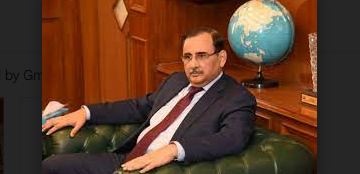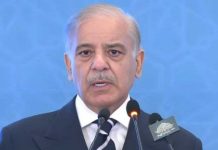DNA
ISLAMABAD, MAR 5: The Federation of Pakistan Chambers of Commerce & Industry’s Businessmen Panel (BMP) on Sunday said that the country’s economy has nosedived partly due to external factors but majorly due to non-serious and poor domestic policy decisions and mismanagement of the economic managers, as the rupee saw yet another dramatic fall in just over a month, plummeting 6.66% while the key interest rate have been escalated by the central bank by 300 basis points to the record historic level of 20%, which will destroy the economy completely.
Asking the authorities to include serious and progressive fiscal reforms in the IMF program FPCCI former president and BMP Chairman Mian Anjum Nisar observed that it is very clear that IMF programs focus on stabilization and crisis management rather than growth-oriented policies that require structural reforms.
He stressed need for a revisit of government policies including the coordination exercise between the Ministry of Finance and SBP, as no independent economist could support the economic policies that are currently in place.
He said that rupee has plummeted 6.66% against the US dollar during the trading session on Thursday, as it settled at 285.09 against the greenback, a decline of Rs18.98 in the inter-bank market. Earlier during the day, the rupee had depreciated to 284.88 against the US dollar in the inter-bank market before posting a minor recovery that proved short-lived.
The rupee had plummeted against the US dollar on Wednesday as well but the fall was less severe as the currency settled at 266.11 after a depreciation of 1.73% or Rs4.61 in the inter-bank market.
The local currency had earlier suffered a dramatic fall when it went from 230.89 to 255.43 on January 26 as the government loosened what were seen as administrative measures to keep the currency in check.
In the open market, the rupee lost 14 rupees for buying and selling against USD, closing at 285.00 and 288.00, respectively.
He said that reports around International Monetary Fund (IMF) are not positive, denting investor sentiment. He added volatility would remain until IMF program is revived and inflows are materialized. He said the delay in IMF funding is creating uncertainty in currency market and added that a number of payments related to imports have been made, leading to pressure on the rupee, as the move to a market-based currency exchange rate regime is one of a list of actions the IMF wants Pakistan to complete to clear its 9th review.
Meanwhile, Pakistan has already taken most of the other prior actions, which include hikes in fuel and energy tariffs, the imposition of new taxation measures, and withdrawal of subsidies in export and power sectors.
The development comes on a day when the SBP has announce further monetary tightening to control inflation at the central bank’s emergency Monetary Policy Committee meeting.
He said that the Pakistan’s economy can grow sustainably only if the country introduces productivity-enhancing reforms that facilitate a better allocation of resources into more dynamic activities, and productive uses. He stated that the country’s inability to allocate all its resources to the most productive uses has stunted economic growth. It presents evidence of systematic productivity stagnation across firms and farms. In manufacturing and services, most of the productivity stagnation is related to firms losing efficiency over time.
The government needs reminding that remittance inflows were 29.4 billion dollars last fiscal year and this large inflow was also due to the fact that the interbank and open market rates did not diverge significantly during the previous tenures.
Thus the current untenable situation is due to a perceived policy of exchange rate manipulation and cannot be attributed entirely to the warnings of impending default or criticism of the handling of the economy.
He observed that coordinating fiscal and monetary policies may be beneficial yet with inflation attributed to administrative decisions in nearly all recent Monetary Policy Statements and the government unwilling to implement key reforms in the power sector and tax structure the SBP needs to be vigilant in ensuring market-based exchange rate policy and a positive discount rate while the Ministry needs to revisit its tax policy, utility pricing policy and of course continued massive injections into loss-making state-owned entities.
The country has had three de facto finance ministers since 16 April 2021, who massively misjudged their capacity to get the International Monetary Fund to agree to phasing out the harsh upfront conditions that were agreed– a miss-judgment that delayed the success of the mandatory quarterly reviews and thereby delayed the disbursement of the tranches on which rollovers by friendly countries as well as pledged new loans estimated at around 4.2 billion dollars are dependent.
Firms that decide to embark upon export-oriented manufacturing despite these adverse incentives face a further distortion. The distortions in place in Pakistan are to a large extent the result of powerful insiders, albeit limited in number, who influence the policy making process to maximize their own benefits.

















